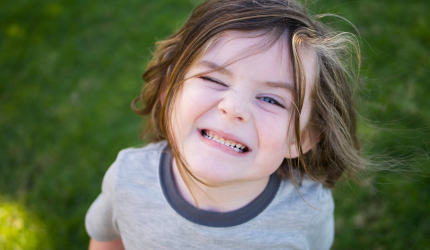

Take a deep breath and read on
For some, the second week of February meant going back to school.
For others, this “back to school” does not exist. Instead, they experience an alternative approach where learning takes place continuously, on a rhythm and coordinates that suit them and make them enjoy what they discover and learn.
Since many of you have recently joined this adventure named unschooling, we invite you to go through the fears we know you are experiencing.
So…take a deep breath and read on.
Friends look at you full of suspicion or even reproach. Your family thinks you are wasting away your children’s lives. Everyone around you is talking about the importance of school. Panic is probably already in full swing.
The truth, which everyone knows for himself and his family, is that you made this choice for a reason. Maybe school was a torment for your child or perhaps he/she didn’t feel like he/she fitted in.
Maybe you are just tired of homework and the demands of teachers. Perhaps you are tired of running around and are no longer feeling like a family, or maybe you are suffocated by the lack of choices. Maybe a little of each. Whatever the reason, the decision is yours. It is your choice.
Put up barriers when dealing with the “friendly” advice of those you interact with. Think about how much you want to share with or explain to others. Talk to your children, especially if they left the traditional system, about how they want to respond when approached on this topic.
Many of those who choose unschooling have an idealized image (children accustomed to the excitement and delight of learning overnight on their own, whole family reading in the evening, exploring museums or parks on sunny days, volunteering for various causes, etc.)
The reality is rarely this simple. It looks more like this: children watch TV for hours, play games on the computer for days or months, and no one seems to want to leave the house.
At this stage, you need to consider a few things:
1. All these manifestations are quite normal and are called de-schooling. Children need TIME to relax and reconnect with themselves, to experiment and discover what they like. The children who have been in the traditional school will need an even longer time to get rid of the reflexes and habits acquired in school.
2. Your children are not you, and they will most likely make different choices than you. One of the defining aspects of unschooling is trust, and this is the moment for you to start practising it if you haven’t already.
Trust their choices. Trust that they will choose what they need at the right time. Make suggestions and give advice, but understand that by offering trust you create a partnership, a framework in which you do not act as a teacher. This way, the child will feel safe and will seek to discover what he likes and wants to learn.
3. Learning happens anywhere and at any time because it is in our nature. Just because something doesn’t look the way we were previously told doesn’t mean it doesn’t happen.
The experience of other families is quite valuable, especially that of the people who have long been in this educational alternative, but, in the end, it only counts as a source of inspiration.
You create your own experience. Every family and person is different, and unschooling can be completely different from one family to another.
That is a good thing. It’s actually wonderful. Enjoy! You have the chance to create a lifestyle that suits the needs of YOUR family.
The support of friends and people who share the same values as you is very important. You need their support.
It is one of the reasons why we organise CEREHARD Conversations (online meetings for the time being) in which parents and children exchange ideas and opinions and offer their own experience to other parents.
Try different things with your children and see what works and what does not.
What is the ideal time together in the family? What about outside of it? What do you like everyone to do, and how do you enjoy doing them? What are your needs, how do they complement each other, or how do they fight head to head? How can you address them so that everyone feels heard and respected?
One of the advantages of this lifestyle is this flexibility, the freedom to change things when they do not work and adapt to your child evolution and yours.
It is a process that takes time, trials and errors, but it is an exercise worth doing because we learn skills that are going to be useful all our lives.
That is true, especially for children, because no one knows what the future holds, and therefore flexibility and adaptability are essential. Just look at 2020!
It is easy to fall into the “what-if” trap. We are all familiar with it. What if the children will want to go back into the system? What if they will want to go to college? What if we, as parents, do not prepare them well enough for the future?
There are many “ifs” out there that do not let us sleep at night, especially these days when finality is more important than the process.
Is that what you want for your children?
A competition, to check off some boxes?
You better focus on what is in front of you, here and now! Things can turn completely upside down overnight (see the pandemic).
Build relationships. Learn. Do your thing, whatever that is. Address the “what ifs” when they appear and become relevant, instead of panicking about a future that hasn’t happened yet.
Children will catch up and learn when and if they will decide to return to school. Adolescents take their entrance exams if they intend to do so. Regardless of age, when there are genuine motivation and free choices, all children assimilate the information they need for exams.
Before learning, there is a context – how we live, how we develop relationships and connections, and how we build trust. Let us focus on cultivating this environment, so learning will come naturally, step by step, through associations and relationships, through the exercise of trust, and by taking your child as a partner.
Nobody leads nor is led in this. Instead, we seek to enjoy our experiences, share them with others, and go with the flow.
The tips above are offered by Idzie Desmarais, an adult raised outside of school and a lifelong learner. You can find more about her here.
Her experience is the first in a series where we aim to present educational experiences other than at school in societies and cultures that have lived in this paradigm for decades.
Their experience is valuable, and we hope it will be useful to as many of you as possible.